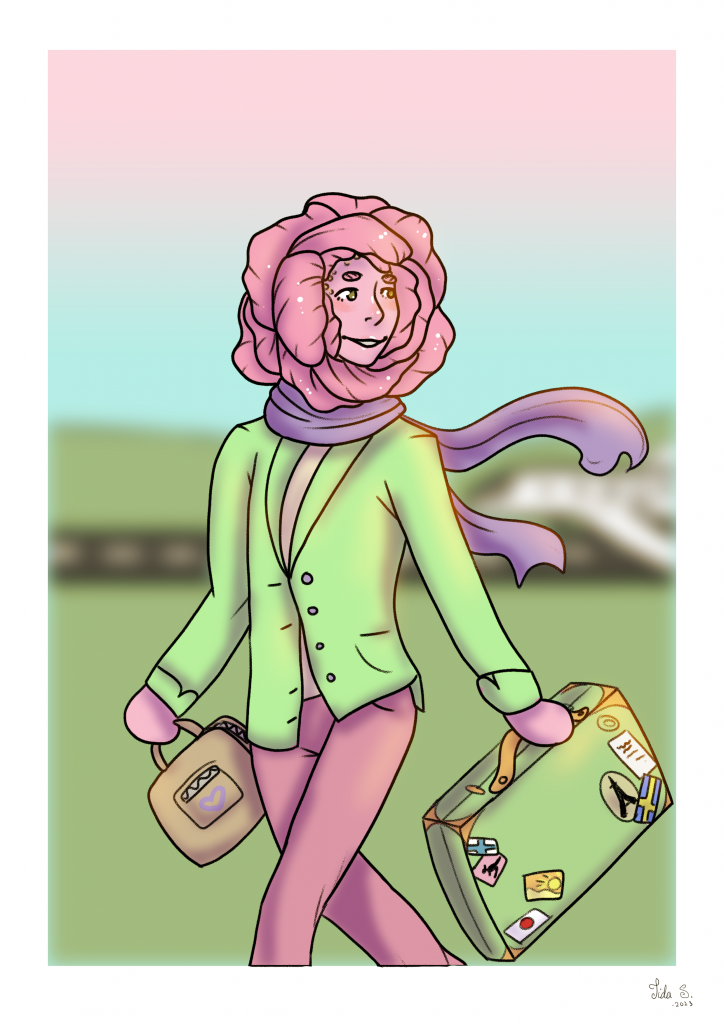Story 5. Why Is It So Hard to Belong to Finland?
This story describes one perspective on how highly skilled internationals experience working and living in Finland. It is based on an analysis of interviews with 62 internationals, combining the experiences, feelings, and thoughts shared by many of them. Read more about how the story was constructed here and check out the rest of the stories here.
Story 5. Why Is It So Hard to Belong to Finland?
I was born in Finland but felt a strong wanderlust and desire to explore the world from a young age. Life to me is an adventure, and I wanted to embrace it by traveling, living, and working in different parts of the world. I think my identity is truly cosmopolitan as I have never really felt the need to attach myself to any one place or country.
After finishing high school, I pursued my studies and career abroad. I ended up working in multinational companies where I progressed to managing several big projects over the years. During my time abroad, I also fell in love, got married, and started a family. I was happy with our lives in my spouse’s home country.
Combining work and family life was not always easy there, but with the support of my spouse’s family and friends and my knowledge of the language, I managed to navigate the challenges.
Then the pandemic hit, causing a significant shift in our lives. As international business slowed down, we both lost our jobs. With uncertainty looming and restrictions in place, we decided it was best to return to Finland. As my spouse was always interested in trying living in Finland, and I had family and friends here, moving was not a difficult decision.

However, I soon realised that adapting back to Finnish society was not as easy as I had expected. Dealing with practical matters involving Kela, the bank, and the TE office has proven to be surprisingly difficult and time-consuming. Navigating the Finnish bureaucracy has been distressing, and it has taken a considerable amount of effort to get our family’s life back on track.
What has truly surprised me is the difficulty of finding a job in Finland. With degrees from prestigious universities, years of international work experience, and proficiency in several languages, I expected that my skills and professional background would be highly valued, offering me numerous job prospects.
I soon realised that adapting back to Finnish society was not as easy as I had expected.
However, reality proved me wrong. Despite applying for countless positions, networking, tailoring my CV, and even making cold calls to potential employers, I have not been successful in landing a job. It feels as though my qualifications and expertise are being doubted or undervalued in Finland. This has left me deeply disappointed.
I am also puzzled by the conservative nature of the Finnish recruitment culture. Throughout my career, I have been engaged in recruitment processes both as a candidate and as a recruiter, and the treatment I have encountered in Finland stands in clear contrast to my previous experiences. I am accustomed to a recruitment culture where job interviews are conducted with respect, where skills are valued and acknowledged, and where candidates are encouraged to continue their professional journey even if they are not selected for a specific position.
From the standpoint of international talent, it seems that Finnish recruitment practices have room for improvement and could benefit from adopting certain practices observed in other countries.
Social life has also presented challenges, and I feel like I no longer belong here. In fact, I often dream about going back to our previous country of residence, which feels more home to me than Finland. I miss our friends and the vibrant social life we had there. Here, I have managed to make only a few new friends, and interestingly, they are all fellow internationals.
However, my spouse, who comes from a modest background and values the stability and reliability of Finnish society, holds a different perspective. He appreciates the safety, trustworthiness of authorities, and the well-functioning public services that Finland offers. He believes that Finland is an ideal place for our children to grow up, and he has also found fulfilling work here. Out of respect for his wishes and for the well-being of our family, it is likely that we will continue to stay in Finland.
Despite the challenges I have faced since returning to Finland, I hold onto the belief that a brighter future is possible.
Despite the challenges I have faced since returning to Finland, I hold onto the belief that a brighter future is possible. There are several positive aspects that provide a foundation of hope: my proficiency in the language, my understanding of Finnish society and culture, and the presence of my extended family for support.
Additionally, Finland offers excellent opportunities for skill development and career change. I am currently contemplating retraining for a new profession, and there are numerous educational institutions that provide such opportunities.
Moving forward, I would like to find work preferably in an English-speaking work environment. With time and the support of my loved ones, I hope that I will be able to build a meaningful life in Finland.
Does this story resonate with your own experiences or those of people you know? Did it surprise you in any way? Leave a comment below or engage with us on LinkedIn and Twitter! Check out the other four stories here, too.
